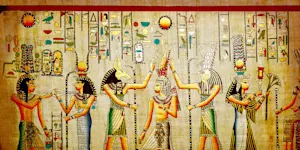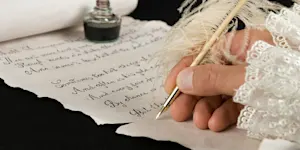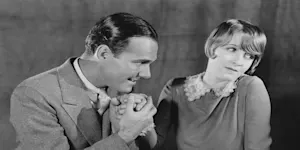What Makes This Word Tick
"Aghast" is a word that embodies the essence of shock and amazement blended into one powerful expression. It’s like a sudden gasp of air when you hear something absolutely flabbergasting. It's not merely being surprised; it's the kind of shock that makes you step back with eyes wide open, perhaps even clutching your pearls!
If Aghast Were a Person…
Imagine aghast as an impeccably dressed, slightly older gentleman with a monocle. Whenever things go awry, you'd find him dropping his cup of tea with a dramatic flair, hand over heart, exclaiming, "Well, I never!" This character is never dull and always ready to express a dignified shock.
How This Word Has Changed Over Time
Historically, “aghast” hasn’t strayed far from its original meaning. It stems from Middle English and has roots in the idea of being “struck by a ghost,” which perfectly captures its eerie, startled essence. Over the centuries, while its usage might have waned slightly, it remains a favored term for depicting dramatic surprise.
Old Sayings and Proverbs That Use Aghast
While “aghast” isn't the star player in any famous old saying, you might imagine it fitting snugly into phrases involving specters or things that go bump in the night. Picture someone saying, “I was aghast when the rooster crowed at midnight, for surely morning ghosts were afoot.”
Surprising Facts About Aghast
Did you know "aghast" has a kinship with the word "ghastly"? Both evoke the supernatural, making them distant cousins in the language of fright. Another tidbit: the word is often used in literature to convey intense emotions, making scenes more vivid and memorable.
Out and About With This Word
“Aghast” typically makes appearances in the realms of fiction and storytelling. Where there’s drama, you’ll often find it lurking, ready to pounce into descriptions of characters who’ve just received shocking news or witnessed something inexplicably bizarre.
Pop Culture Moments Where Aghast Was Used
In the world of cinema and TV, "aghast" is frequently felt, if not always heard. Think of those classic horror films where the heroine discovers the hidden monster or when a plot twist leaves everyone in the room in stunned silence. It’s the unspoken word that’s vividly alive in their expressions.
The Word in Literature
"Aghast" is a staple in gothic literature, where it peppers the pages of works by Edgar Allan Poe and Mary Shelley. It's what you might feel while reading "Frankenstein," when Victor beholds the creature he’s brought to life, realizing the gravity of his creation.
Moments in History with Aghast
Picture any moment of earth-shattering revelation—Airships falling from the sky, kings being dethroned, or treaties being signed. The onlookers in these times were no doubt aghast, capturing the collective gasp of society in pivotal moments.
This Word Around the World
While "aghast" might not have direct translations, the sentiment is universal. In France, one might be "stupéfait," while in Italy, someone could be left "sbalordito." No matter the language, the feeling of horror-struck surprise is always relatable.
Where Does It Come From?
The roots of “aghast” are decidedly Middle English, coming from “gast” or “gasten,” meaning to frighten. The prefix “a-” intensifies the emotion, leaving us with a word that conjures up the image of a ghostly pallor spreading across one's face.
How People Misuse This Word
“Aghast” sometimes gets confused with mere surprise or confusion, but it should pack a punch of terror or horror as well. It’s not for casual shocks, like learning your friend doesn’t like apple pie, but for moments like discovering your favorite pie shop has closed forever!
Words It’s Often Confused With
Astonished: Focused more on amazement than shock, lacking the ghostly fear that "aghast" bears.
Appalled: Shares the element of disapproval along with shock, often used for negative surprises.
Astounded: Denotes surprise and wonder, yet misses the frightful undertone of "aghast."
Additional Synonyms and Antonyms
Synonyms for "aghast" might include "shocked," "horrified," and "stunned." On the flip side, an antonym would be "unperturbed," where calmness reigns and surprises are few.
Want to Try It Out in a Sentence?
"Walking into the party, Martha was aghast to find her picture from the 1960s displayed for everyone to see, complete with her infamous beehive hairdo." Let the imagery of her surprise fill the room for a delightful sense of nostalgia and humor.
















